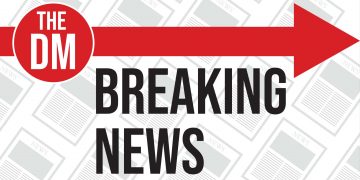Last week, an anonymous group of current and former housing workers published an open letter to the university detailing a series of demands. These demands — hazard pay, personal protective equipment, mandatory free testing, food and housing security in the event of campus closure — are necessary to protect student housing workers during the pandemic. You might be forgiven if you were surprised to learn that such safeguards aren’t already in place. These demands are neither unreasonable nor impractical. Taken together, these demands constitute the bare minimum.
As basic as these demands are, they rest on a still more fundamental plea. The phrasing of many of these demands follows a certain pattern. Consider the second demand: “University Admin must acknowledge their failure to provide adequate PPE to housing workers and immediately begin to provide extra masks and face shields to all housing workers.”
At one level, the demand asks the university to remedy the harm it caused, but it first asks the university to reckon with that harm. That student-workers must beg the university for personal protective equipment during a pandemic is shocking. But the fact that student-workers must beg the university to acknowledge the suffering on our campus should come as no surprise.
The recent history of the university reads as a story of willful ignorance played off as incompetence. As crises have emerged, the university has bent to the wishes of well-connected outsiders while disregarding the people who actually live and learn and work here. The university easily finds the money to pay the chancellor $500,000 a year, to consider building a $1.15 million Confederate shrine, to award the football coach a $16 million contract and to fund a $32 million recreation-center-turned-vanity-project. But when it comes to anything beyond or against the interest of its benefactors — facemasks, living wages, disposable gloves, delayed football seasons — the university tells us that times are tough.
These mishandled responses — rushing the improper installation of Glenn Boyce, fumbling the removal of white supremacist symbology from campus, failing to prioritize the health and safety of the community — have been met with widespread frustration from students, faculty and staff. But in the face of such protests, the university has offered half-measures at best. The default approach of the university has been to ignore a problem until it goes away, and this approach has largely worked.
The conditions threatening the lives and livelihoods of the campus community are too dangerous to ignore. And yet, if the university can ignore those conditions, it likely will. In the spring, one case in Mississippi forced the administration to close campus. In the fall, after almost 100,000 cases in Mississippi, the same administration has not even specified the number of student infections it will accept before closing campus. The university might dispense more press releases about “unprecedented times,” but more serious change will not come easily.
Assuming you are neither exceptionally powerful nor staggeringly wealthy, your interests and the university’s interests are not the same. This is the insulation that lets the university ignore you. It does not matter how you — the student, the professor, the worker — measures the health of this university. Your problems are not the university’s problems unless you make your problem the university’s problem. Such was the goal of those who chose to write the open letter, and such must be the goal of anyone who wants this community to change.
John Hydrisko is a senior English, Philosophy and History major from Philadelphia, Pennsylvania.



























